Over the past few years, seemingly every JDM car fan has been eager to learn more about Toyota’s incoming flagship. Not a sedan, not an SUV, a coupe that should take the fight to heavyweight European brands like Ferrari and Aston Martin. Unsurprisingly, it seems to be progressing nicely. The Toyota GR GT concept made a leisurely run up the hill at the Goodwood Festival of Speed, and once that was done, we got to see it up close on Toyota’s stand.
While Toyota doesn’t have a ton of supercar experience, the last one it built quickly became a classic. Yes, the Lexus LFA suffered from an egregiously long gestation period and was wildly expensive when it launched, but it’s also arguably the last great limited-run V10 car, with a Yamaha-tuned plenum serving up notes of the angels. It’s going to be a tough act to follow up, but that doesn’t mean Toyota isn’t trying.
Straight out of the gate, the first thing you notice is some absolutely gnarly aerodynamic ducting right behind the front wheels that fills the enormous dash-to-axle ratio. It’s some serious racecar shit, even on the street-focused model that’s recently been spotted cruising the canyons of Los Angeles. Of equal importance, the visible shut line indicates this thing’s rocking a Supra-style clamshell hood, although we don’t know which way it opens. Either way, it helps keep the hoodline low over the arches, and the result is fantastic.
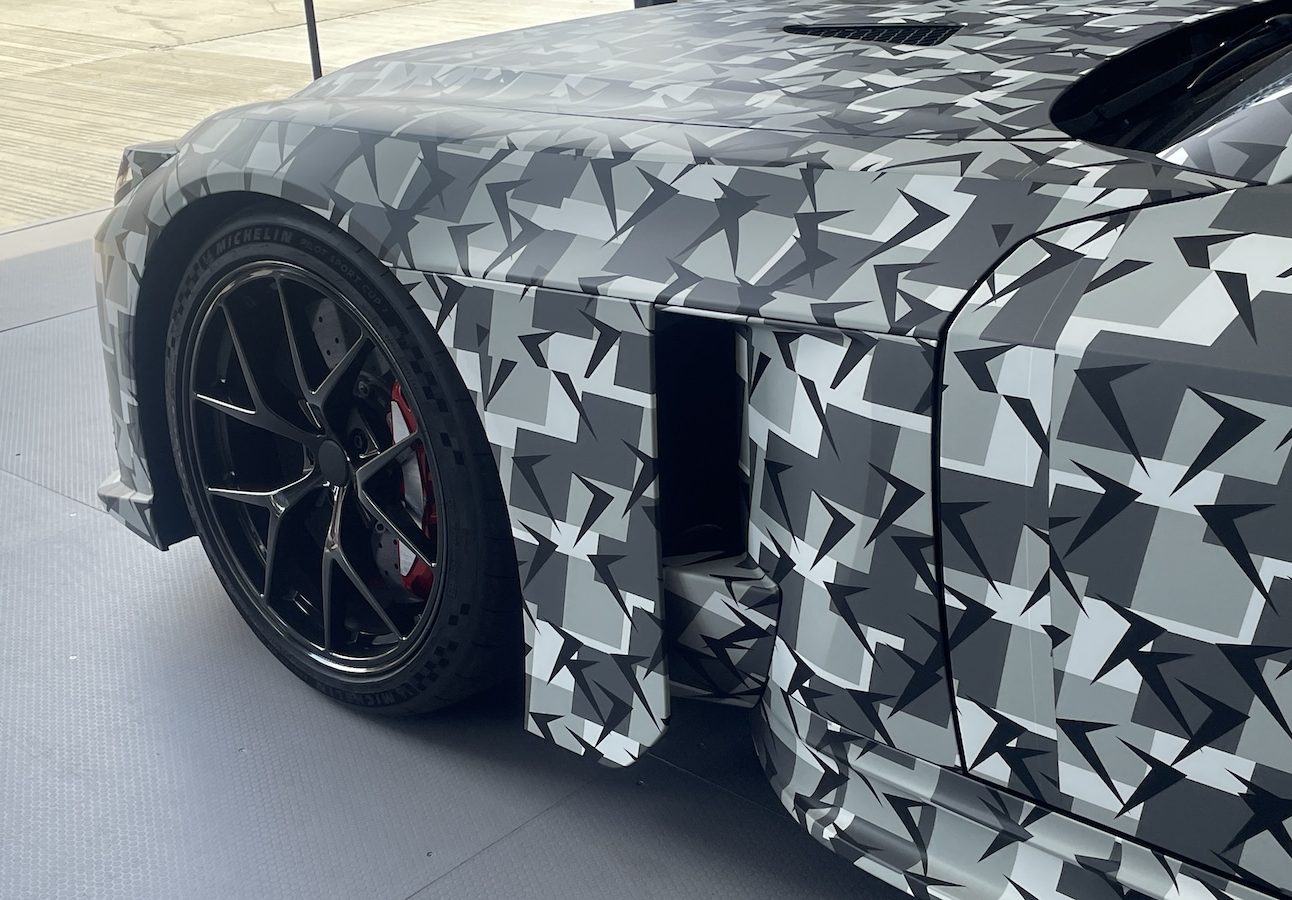
Further down the bodyside, we see a filler panel behind the side window with what appears to be a button on it. Given the flush-fit door handles, it’s possible this is the keyless entry button, but Toyota’s typically a fan of capacitive touch for that, so it’s really anyone’s guess. Just behind and below that, you’ll find a cooling duct in the quarter panel with an LFA-style rise to its leading edge that rises above the base of the greenhouse. It’s certainly more subtle than you get on an LFA, but the familial cue is there. Unsurprisingly, heat’s exhausted by big grilles in the rear bumper, and a large ducktail spoiler adds further drama to the rear end. Speaking of out back, check out what appear to be large licence plate lights, possibly used to accommodate a variety of licence plate sizes. Will they make it to production? Possibly not, but they’re neat details on this prototype.
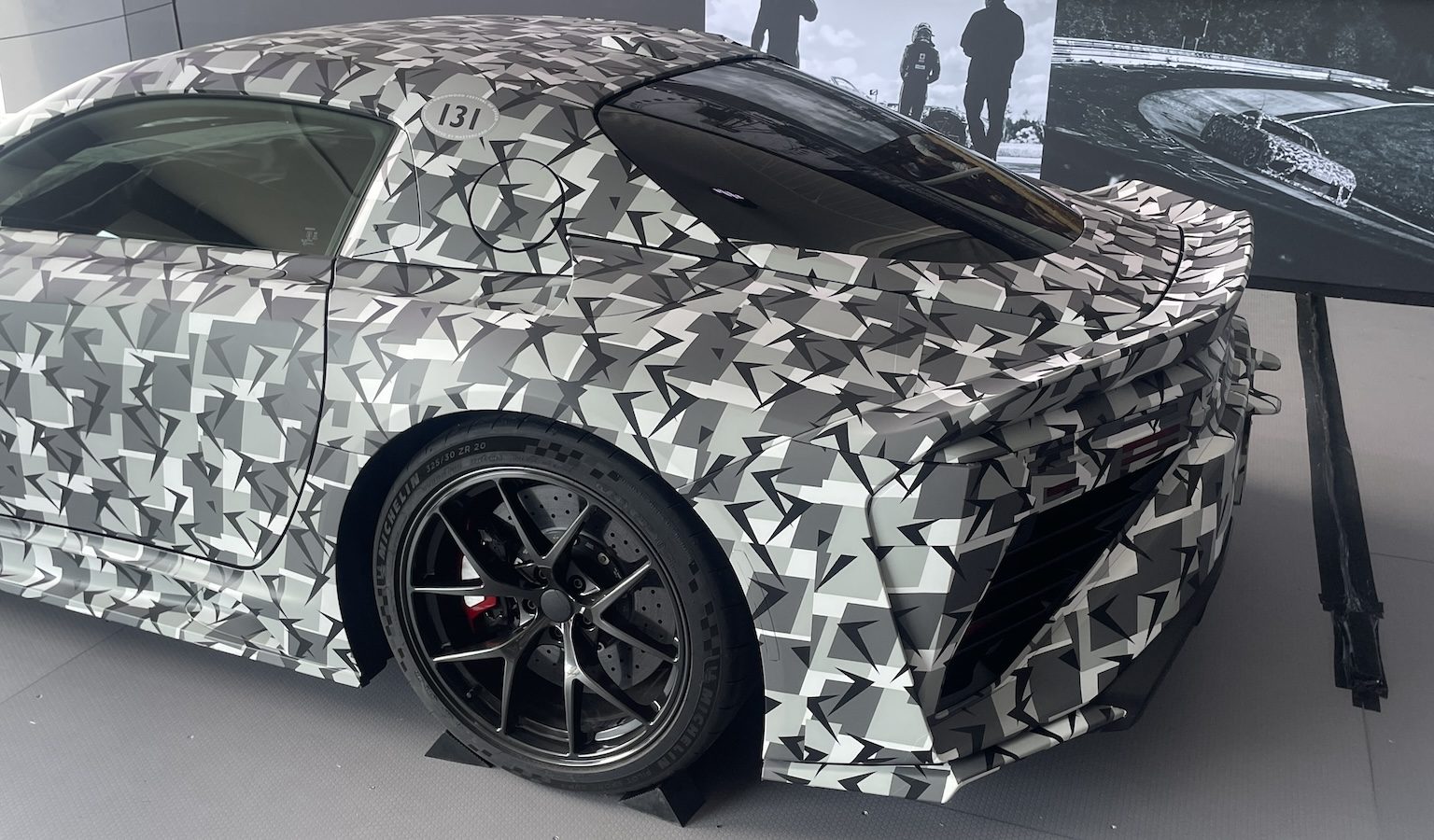
As for rolling stock, this prototype features specially marked Michelin Cup 2s measuring 265-section up front and 325-section out back. Spicy figures, but commensurate with the performance potential of such a package. Fixed brake calipers feature all around, clamping what appear to be carbon ceramic discs.
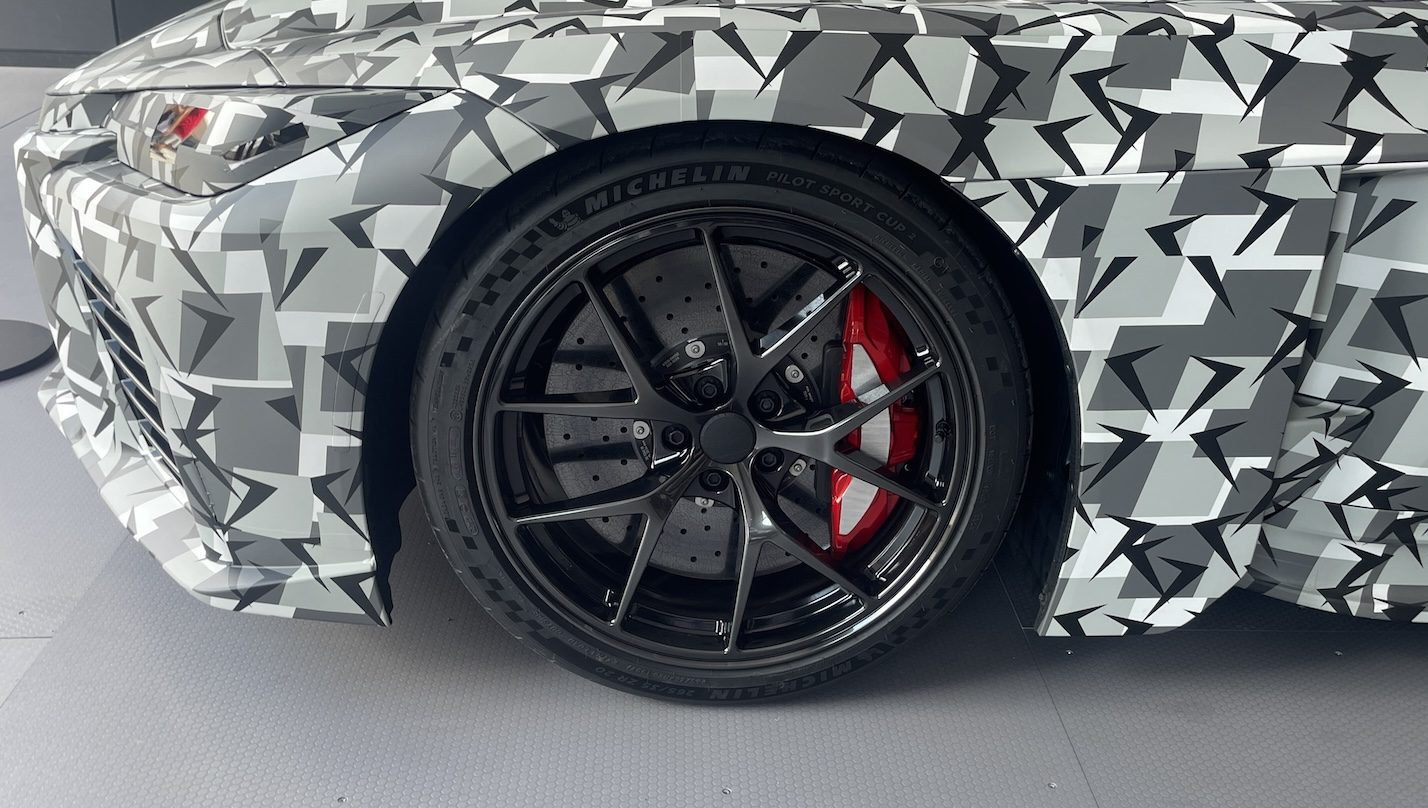
While we don’t yet know what branding this flagship will wear, there are some familiar styling cues on display. The general headlight shape isn’t too far off the motifs seen on late-model Lexus RX and IS models, and I’m digging the little teeth camouflaged in the grillwork. While Toyota bills this thing as a concept, why would a pure concept car have ultrasonic parking sensors in the quarter grilles and in a blanking panel between the headlights? Answers on a postcard, please.
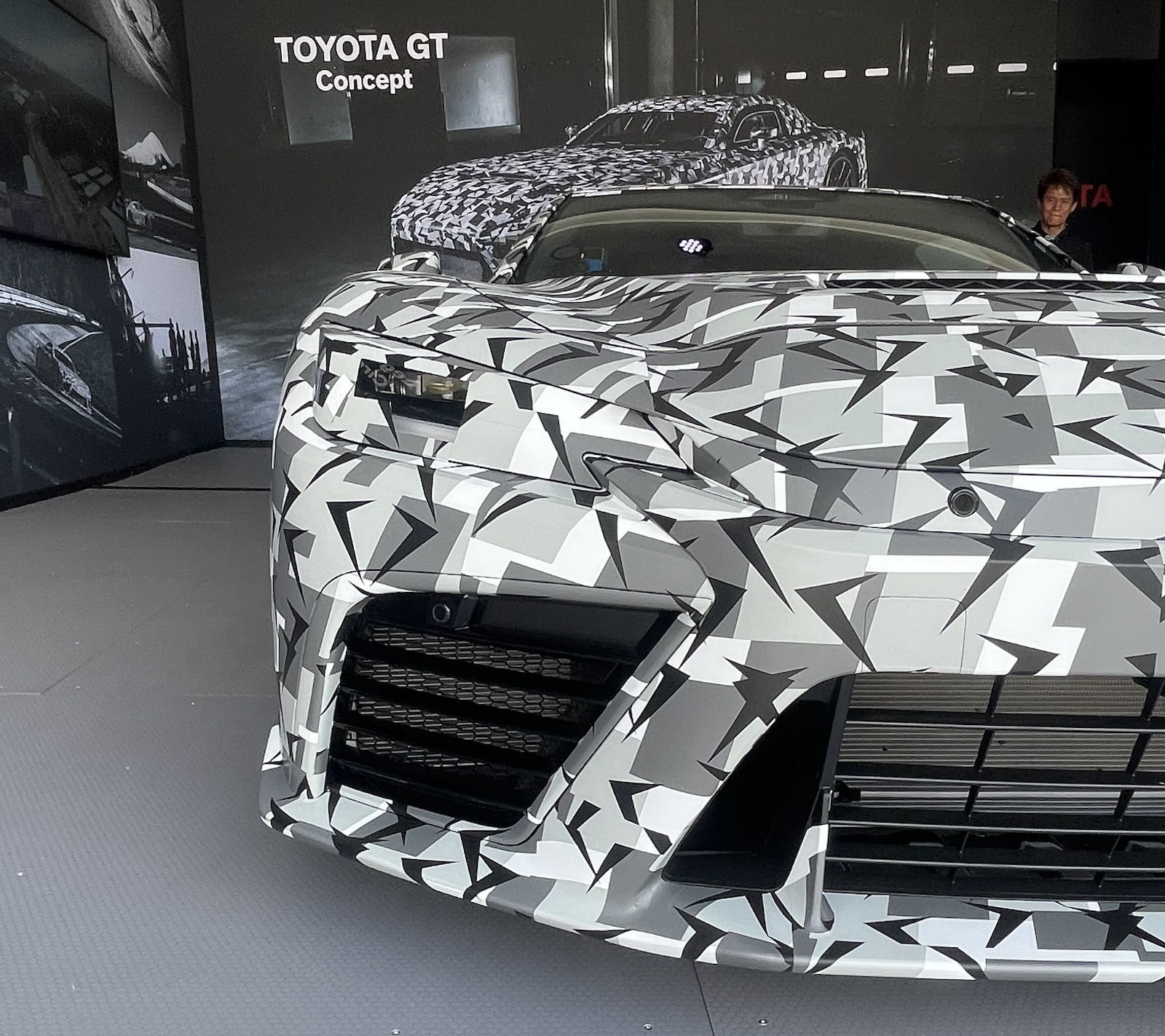
Understandably, the dashboard of the Toyota GR GT concept was thoroughly covered up in the GR booth at Goodwood, but the door panels weren’t. Red interior, anyone? I’m really liking the contouring to the interior door panel, a play of materials and shadow matching this car’s market positioning. It’s going to exist in a higher echelon than the awe-inspiring Lexus LC 500, and it seems like Toyota’s taking some learnings from that car to heart.
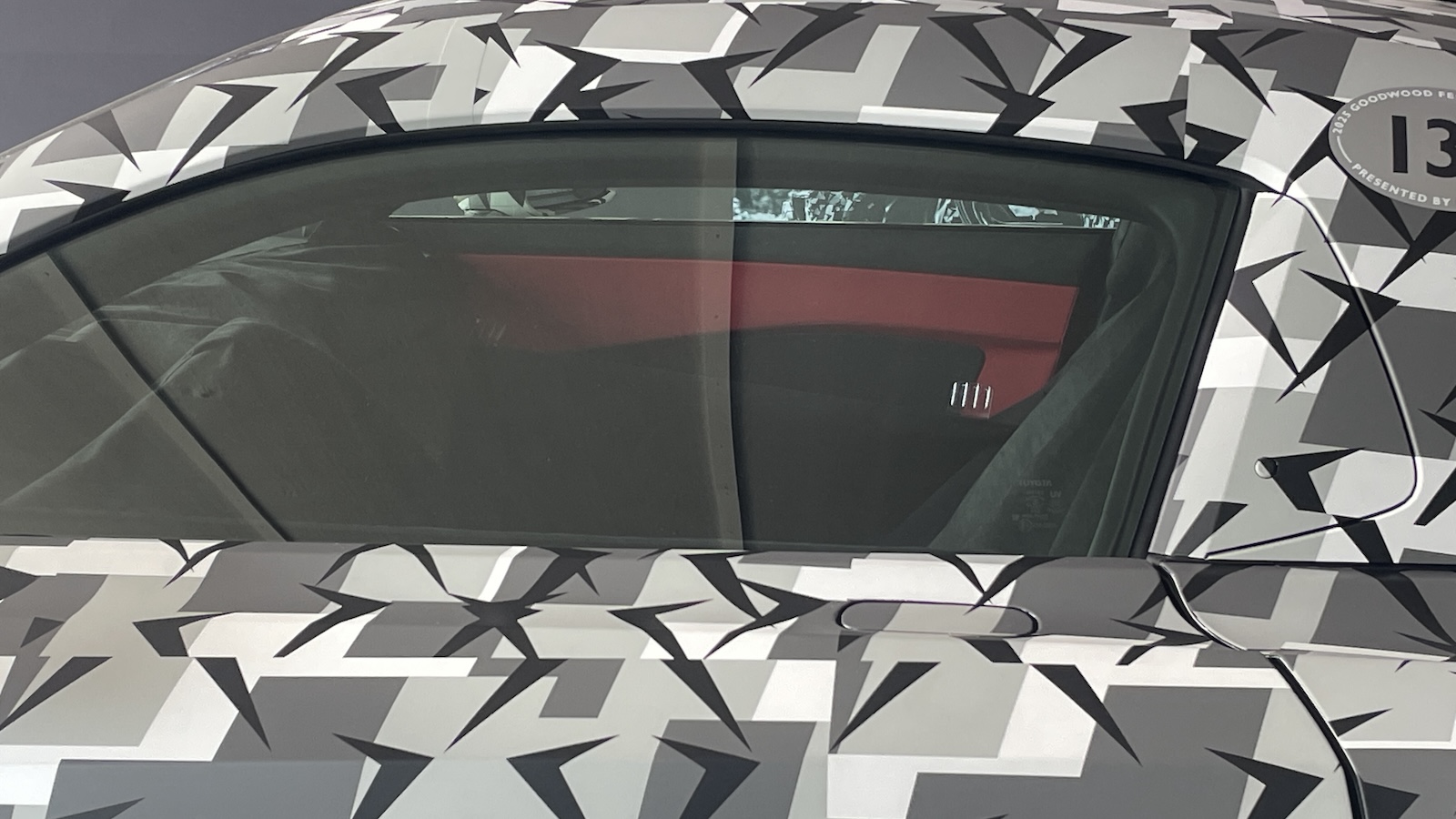
While there’s still a ton we don’t know about the Toyota GR GT concept, I wouldn’t be surprised if we learn more relatively soon. This definitely doesn’t seem far from production in execution, but I’d expect development to continue for an indefinite amount of time. Still, if Toyota’s showing it off at Goodwood, it ought to be going well, yeah? If this early glimpse is any indication, this supercar is going to be awesome.
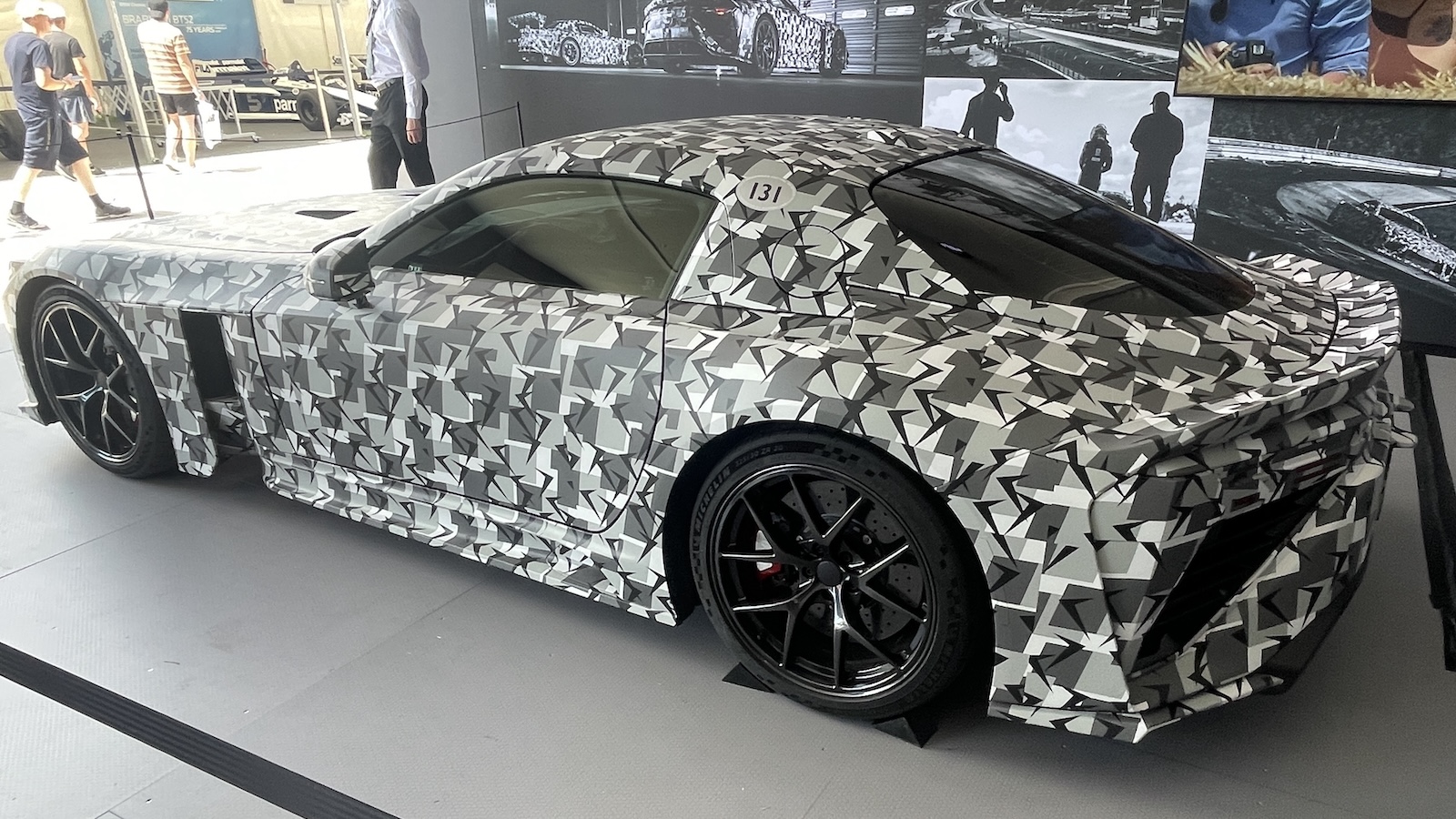
Top graphic image: Thomas Hundal
Support our mission of championing car culture by becoming an Official Autopian Member.

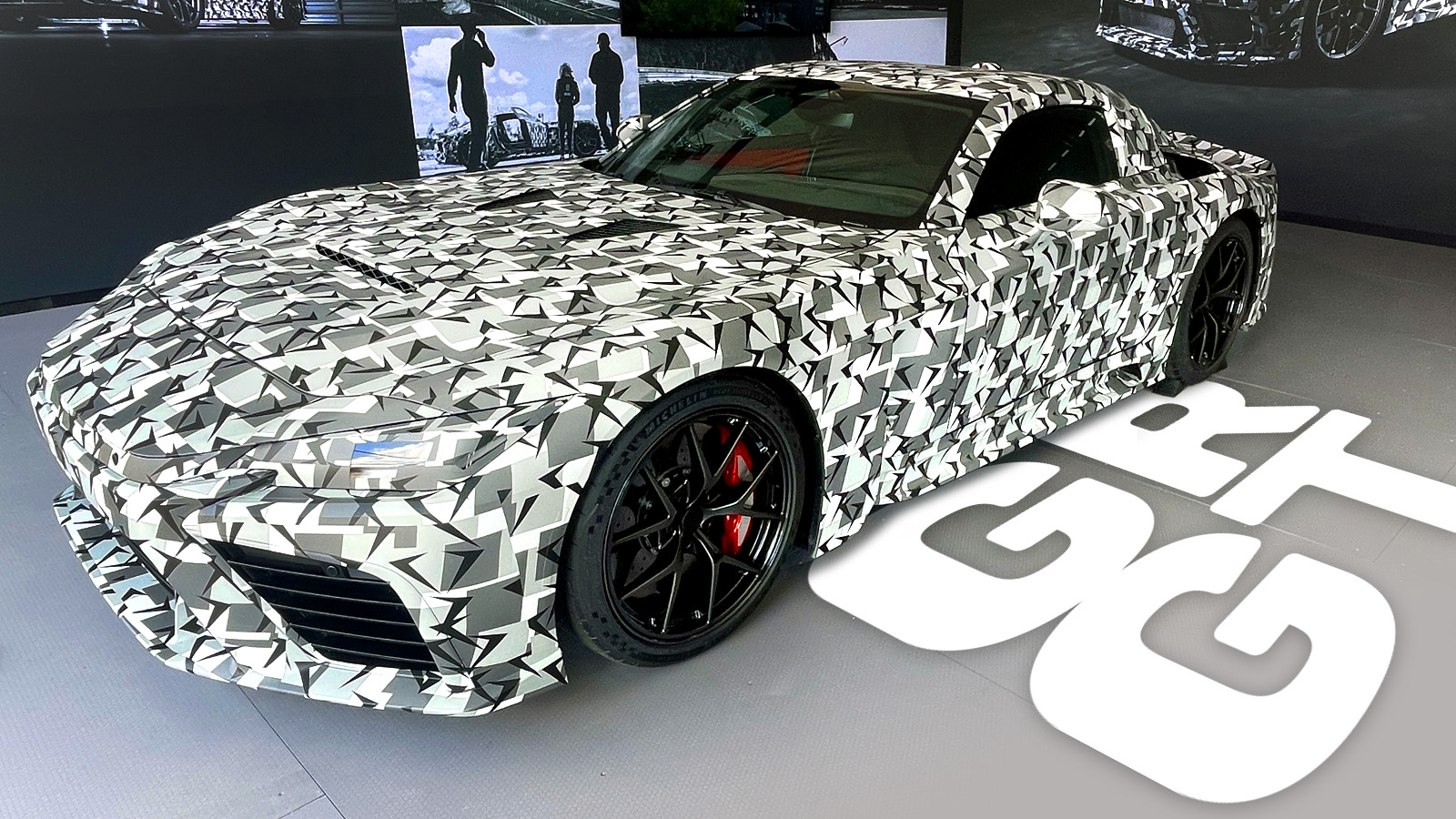







Thomas, what’s a post card? What stamp do I have to put on it? And what address should I send it to? It’s only the last question that I can’t figure out.
But yet another car that is so not in my target circle.
These are the proportions that the C8 corvette should have had, except they went mid engine and all harsh angles with the car instead.
This Toyota-Lexus thing has hints of Cadillac XLR
Yeah my immediate impression is C7, but less brutish.
Mid-engine was inevitable, I’m over it.
It would look fantastic with about 4-6’’ of height removed from the middle all around. Just remove a slice and it would have great proportions. Challenger has the same issue. Sadly, that kind of change is not possible since it’s structural.
I’m not so sure it’s going to be great. I’ve never wanted to own a car more than the LFA, and that’s partly *because* it’s flawed. The single clutch gearbox isn’t super smooth. It’s crazy expensive. But THE NOISE!
There’s no way we get that noise ever again. Competition and emissions dictate some form of forced induction.
I’d bet this will be more of a flop similar to the relaunched NSX.
I doubt anyone forces manufacturers to use forced induction. They often use Turbos to get more power or to be able to get away with a smaller engine. Which isn’t needed on 97% of the cars available today ; a 100 horses is enough, but showing your 1.8 liter 4 banger has 250 horsepower looks good. On paper. Better than showing it has say 120 horse power with equal fuel economy.
Turbo’d engines don’t have better fuel mileage against non-turbo’d engines of the SAME displacement. So a 3 liter V6 will probably go as fast as a 1.8 turbo – the engine might weigh a little less and the power might be a bit more, especially at lower RPMs where most drivers utilize the engine anyway.
The V6 has more internal friction so it uses more gas. The small engine is cheaper to manufacture. Less materials needed. Sure there are things like the turbo, the intercooler and hoses and what not etc but that is not THAT expensive compared to the casting of a V6 , with 6 of everything, liners, pistons, conrods, larger crankshaft, double overhead cams etc etc.
Small turbo engines are a blessing for manufacturers because they can promote their cars as being high powered, while saving a ton.
Meanwhile the amount of fuel needed to get that power is of course … the same. You cannot invite power. You need air + fuel. More power? More fuel.
So if that turbo engine ISN’T using a lot of power, like cruising on the streets in a city or even on the highway then … the added weight of the turbo-components and added exhaust back pressure would make the turbo engine have worse MPG than the same engine without the turbo. It only needs to make around 25 horsepower for a 4 ton car doing 55 mph.
Smaller turbo engines making the same power as a larger normally aspirated engine can and should use less fuel. Fuel savings come from less friction and reciprocating mass from being smaller and having fewer parts, and from also more ideal combustion as a result of being turbocharged.
This doesn’t always happen, but the potential is always there.
Turbocharging the same displacement engine can and does often increase fuel efficiency, when that’s a design goal when engineering the system. Turbos are often used in that role to optimize combustion.
“The added weight of the turbo-components and added exhaust back pressure” do NOT necessarily result in worse MPG than the same engine without the turbo, because modern turbochargers don’t require high RPM to benefit from boost. Low pressure turbocharged engines are often more efficient under light loads.
Old turbocharged designs that required high RPM to benefit from boost? Yeah, those were less efficient in low power demand uses because the turbo took a lot of exhaust volume to build pressure. But modern turbos, especially variable turbos, are designed with low pressure operation in mind, and often act the opposite of the way you describe.
The knowledge you have about turbocharged engine systems is at least 20 years out of date.
I’d also add the difference in compression ratios. Modern GDI turbos run CRs that NA engines ran prior to GDI, so off boost, they are more efficient than turbo engines of old and closer to an NA MPFI engine of similar displacement. A turbo GDI engine of decent enough displacement that it doesn’t often need to boost under normal conditions will offer improved mileage over the large NA in most cases. Just as an example, my Focus ST 2.0 GDI turbo made 250 hp and averaged about 30 mpg. My Mazda3 2.3 MPFI made 160hp and averaged close to the same mpg. Both cars used the same platform and were both 5-door hatchbacks of comparable aero. ST had a little taller 6th than the Mazda’s 5th, but weighed somewhere around 500 pounds more.
The relaunched NSX failed sales wise but it did exactly what Honda to do: showcase new technology.
It was Honda’s attempt at combining their SH-AWD, V6 turbo, and hybrid system all in a mid-engine platform. It failed to appeal to supercar buyers due to the batteries and it didn’t appeal to enthusiasts because the R35 GTR was still competent enough while being cheaper.
The LFR’s success in terms of sales lies entirely on its pricing. $150,000? Great success. $200,000? Not so sure. But the takeaway point for me is that we’ve finally got a supercar out of Japan for the first time since 2008 (sorry but the NSX is an American car) that will offer AMG GT63 performance in a package that’s more efficient, potentially cheaper, and certainly more reliable.
There’s another cut line up atop the fender and behind the headlights, I’m pretty sure this doesn’t have a clamshell hood. The panel gaps between the upper fender and the door have no space for overslam.
No Space for Overslam. Amazing phrase. Or album title.
Well spotted.
Bring back the original one from the late 60’sToyota. Then We will all be truly excited
super sexy in camo
Really strong Lexus LFA vibes.
The rear has an ‘uncovered’ corner, extending from spoiler to below the wheels, similar to the rear blackened portion of the LFA. The front retains the raised x-cross shape separating the headlights, grille, hood. Like the LFA, the shoulder-line is elevated relative to the hood and cabin, leading to what looks like a small vent beyond the c-pillar.
LFA? LFA 2.0? LFB? Whatever you call it, it’s a nice looking car. Even with all the camouflage it already looks better than recent uninspired Ferrari designs.
I’m only here for the circular opera window.
Hey, be kind. Circular and oval opera windows rule!!!! Put a 75th anniversary fake diamond ship in it and I’ll pay double sticker price dammit!! My Mark 5 will be worth millions circa 2025. Think I’m kidding? Check the BAT prices fool
Is it actually going to be a Toyota?
In Japan, maybe.
Looks like a corvette
Also, no way it has a clamshell hood based on these pics. That seam is way too narrow for a hood line and there’s a clear hood line where you would expect it.
Was there a VIN plate? Always look for a VIN plate when at events like this, and photograph it if you get the chance. Many certification prototypes carry them. The first three letters would tell you whether it was a Toyota or a Lexus.
Out of all the AI stuff we have these days, why hasn’t someone made an AI tool to remove the camouflage pattern wraps on prototypes yet?
We have rendering artists for that.
Actually you could take six or so pictures of a car wearing camo like this and get a very accurate 3d rendering. All the reference points make it easier to do.
Just fed the above photos to ChatGPT, and it would only spit out a GR Supra no matter how I asked.
Try it. It’s already a thing, it’s just not named as a “camouflage remover” tool in the system.
I suspect de-camouflaged photos aren’t published because you wouldn’t want to annoy the ones who can grant you early access to other vehicles. Don’t offend your benefactors.
I asked the AI to show me images of the Toyota GR GT concept with the camouflage patterns removed, and I let the AI find the base images to work with, but you could feed it these specific images if you like.
By the way, it does look even better that way. I especially like it in a Castrol race livery.
It sounds like it has a V8 as well
LFA is the most frustrating vehicle to ever be announced a decade before production.
Is the ID.Buzz the winner of the two-decade category?
I’m still waiting for VW to produce the real successor to the bus.
2.5 decades.
Bronco is certainly in the running for this as well. And the Supra, and several other special cars of late.
I think I tuned out after the LFA, and was spared the frustration of the others. I don’t remember if the stories were pushed out by Toyota, but it seemed like I was forced to read something about the LFA weekly on the automotive forums.
Years of weekly updates on no progress.
My favorite was the multi-year delay because they insisted they needed to use unobtabium, but had to build a machine to make unobtainium since it obviously did not exist. They then wanted a round of applause for making the unobtanium, and of course wanted to a victory lap that their car almost matched the performance of the Ferrari 360 when Ferrari had moved on to the F430.
I did also follow the development of the Toyobaru, convinced that if it were ever produced it would be little more than an appearance package on a Solara. In that case, I was pleasantly surprised by the result.